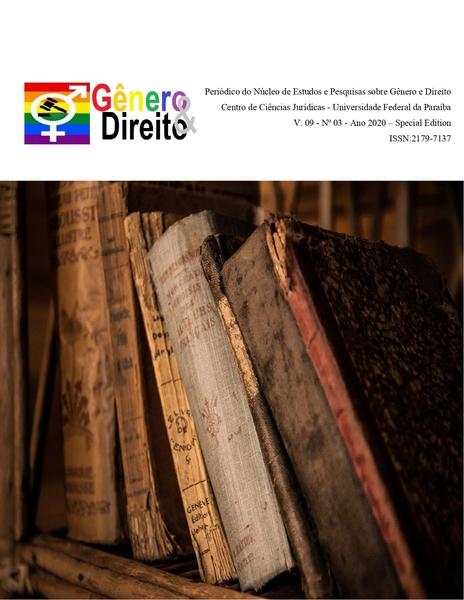CHARACTERISTIC OF PERSONNEL READINESS FOR CONFLICT MANAGEMENT IN THE PROMOTION OF TECHNOLOGY
Palavras-chave:
Technology, Characteristic Of Personnel, Management, ConflictResumo
The analysis of the personnel competence, reflected in the professional standards, allows us to identify the main areas of training that have a positive impact on the challenges of the technology. At the same time, employees of the organization, as a rule, have different professional training and practical experience. From this perspective, the phenomenon of in-house training of the personnel is updated, under which the training is carried out on the basis of the organization and aimed at achieving the objectives to develop it. Communication, as a mechanism of using communicative skills that can have both positive and negative effects, occupies a leading position in the professional activities of the personnel. Thus, it is connected, in most cases, with conflicts, in particular, the lack of personnel preparedness and readiness to manage them. Researchers are actively engaged in finding the ways to prevent and resolve conflicts, using various forms of post-graduate training, including in-house training of adult audience.
Downloads
Referências
2. Kuzmina N.V. Zimichev A.M. Methodological and methodological problems. SPb.: St. Petersburg Academy of Acmeology, Vol.9. 323 p. 2003.
3. Ananyev B.G. Personality, subject of activity, individuality. Directmedia Publishing, 2008. 134 p.
4. Antsupov A. Ya. Shipilov I. I. Conflictology. - M .: UNITI, 2007. - 490 p.
5. Bozhovich L.I. Problems of personality forming: Selected psychological works. Ed. D.I. Feldstein. - 3rd ed. –M .: Moscow Psychological and Social Institute. Voronezh: NPO MODEK, 2001. 352 p.
6. Burtovaya E.V. Conflictology: textbook. - M .: UNITI, 2003. 512 p.
7. Ilyin E.P. Differential psychology of professional activity - St. Petersburg: Peter, Peter Press. 2008. 310 p.
8. Klimov E. A. Psychology of professional self-determination: a textbook for universities. 4th ed., Sr. - M.: Academy, 2010. 304 p.
9. Coser L. A. Functions of social conflict. Transl. from English O. Nazarova; Under the ed. L. G. Ionin. - Moscow: House of Intellectual Books: Idea-Press, 2000. 295 p.
10. Leontiev A.N. Activity Consciousness. Personality. -M .: Progress, 1983. 365 p.
11. Lesher O.V. Yabbarova L.V. Conflictological competence of a university teacher as a pedagogical condition for effective management of pedagogical conflicts. Bulletin of the Chelyabinsk State Pedagogical University. 2010. № 7. P. 170-177.
12. Novikov D.A. Theory of management of organizational systems. 2nd ed. - M .: Fizmatlit, 2007. 584 p.
13. Noskov O. G. Psychology of Labor: Textbook. allowance for stud. higher studies, institutions. Ed. E. A. Klimova. - M .: Publishing Center "Academy", 2004. 384 p.
14. Platonov K. K. On the system of psychology. M., “Thought”. 1972. 216 p.
15. Raven J. Competence in modern society. Identification, development and implementation. M .: Kogito-Center , 2002. 400 p.
16. Ratnikov, V.P. (Ed.) Conflictology. Textbook. Moscow: UNITY-DANA, 2012. 543 p.
17. Rubinstein S.L. Basics of general psychology. St. Petersburg: Peter, 2004. 720 p.
18. Silkin A.V. Gaming technologies as a means of shaping the readiness of a future manager to crisis economic situations: dissertation ... Candidate of Pedagogical Sciences: Orenburg. 2011. 236 p.
19. Stolyarenko L.D. Psychology of business communication and management: Phoenix, 2007. 460 p.
20. Tonkov E.E. Theoretical bases of pedagogical management of organizational conflicts (on the material of law enforcement): dis. ... dr. ped. Sciences. Belgorod. 2000. 434 p.
21. Ukhtomsky A.A. Dominant. -SPb .: Peter. 2002. 448с.
22. Tsoi L.N. Practical conflictology. - M., 2001. 233 p.
23. Holland J. L. Explorations of a theory of vocational choice. J. App. Psychol. Vol. 52. №l. 1985. 54-79 p.
24. Moskowitz G.B. Social Cognition: Understanding Self and Others. NY, NY: The Guilford Press, 2005.
25. Saarni C. The development of emotional competence. New York: Guilford Press, 1999.

